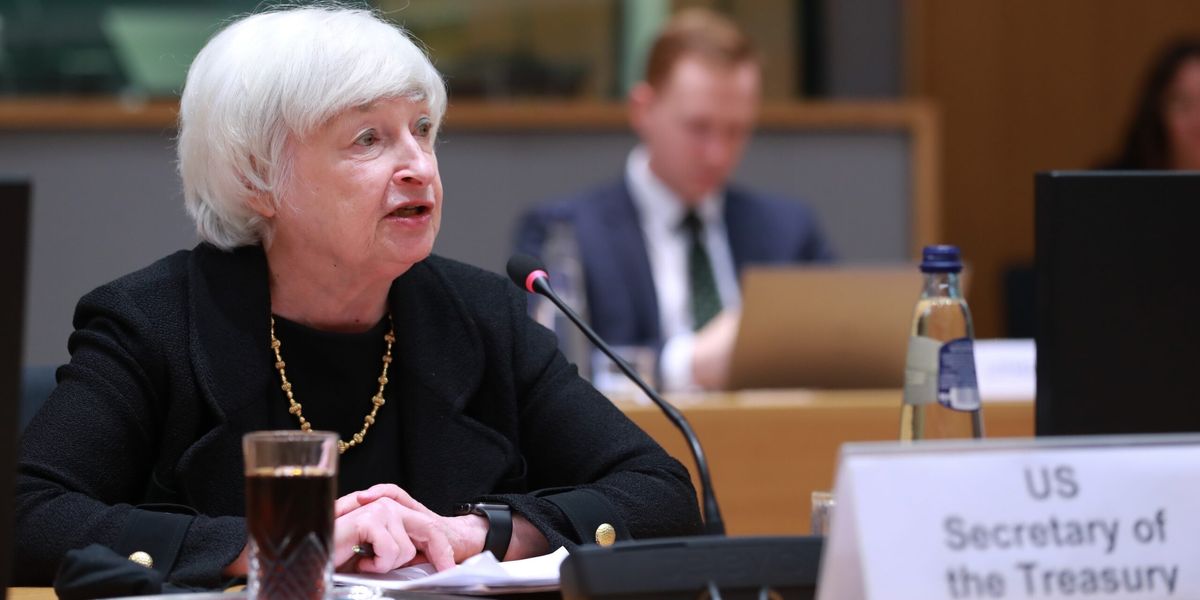On Tuesday, U.S. Treasury Secretary Janet Yellen strongly endorsed efforts to tap frozen Russian central bank assets in order to continue to fund Ukraine.
“There is a strong international law, economic and moral case for moving forward,” with giving the assets, which were frozen by international sanctions following Russia’s 2022 invasion of Ukraine, to Kyiv, she said to reporters before a G7 meeting in San Paulo.
Furthermore on Wednesday, White House national security communications adviser John Kirby urged the use of these assets to assist the Ukrainian military.
This adds momentum to increasing efforts on Capitol Hill to monetize the frozen assets to assist the beleaguered country, including through the “REPO Act,” a U.S. Senate bill which was criticized by Senator Rand Paul (R-Ky.) in a recent article here in Responsible Statecraft. As Paul pointed out, spending these assets would violate international law and norms by the outright seizure of sovereign Russian assets.
In the long term, this will do even more to undermine global faith in the U.S.-led and Western-centric international financial system. Doubts about the system and pressures to find an alternative are already heightened due to the freezing of Russian overseas financial holdings in the first place, as well as the frequent use of unilateral sanctions by the U.S. to impose its will and values on other countries.
The amount of money involved here is considerable. Over $300 billion in Russian assets was frozen, mostly held in European banks. For comparison, that’s about the same amount as the entirety of Western aid committed from all sources to Ukraine since the beginning of the war in 2022 — around $310 billion, including the recent $54 billion in 4-year assistance just approved by the EU.
Thus, converting all of the Russian assets to assistance for Ukraine could in theory fully finance a continuing war in Ukraine for years to come. As political support for open-ended Ukraine aid wanes in both the U.S. and Europe, large-scale use of this financing method also holds the promise of an administrative end-run around the political system.
But there are also considerable potential downsides, particularly in Europe. European financial institutions hold the overwhelming majority of frozen Russian assets, and any form of confiscation could be a major blow to confidence in these entities. In addition, European corporations have significant assets stranded in Russia which Moscow could seize in retaliation for the confiscation of its foreign assets.
Another major issue is that using assets to finance an ongoing conflict will forfeit their use as leverage in any peace settlement, and the rebuilding of Ukraine. The World Bank now estimates post-war rebuilding costs for Ukraine of nearly $500 billion. If the West can offer a compromise to Russia in which frozen assets are used to pay part of these costs, rather than demanding new Russian financing for massive reparations, this could be an important incentive for negotiations.
In contrast, monetizing the assets outside of a peace process could signal that the West intends to continue the conflict indefinitely.
In combination with aggressive new U.S. sanctions announced last week on Russia and on third party countries that continue to deal with Russia, the new push for confiscation of Russian assets is more evidence that the U.S. and EU intend to intensify the conflict with Moscow using administrative mechanisms that won’t rely on support from the political system or the people within them.













